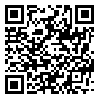دوره 8، شماره 1 - ( 10-1398 )
جلد 8 شماره 1 صفحات 8-1 |
برگشت به فهرست نسخه ها
چکیده: (4021 مشاهده)
Objective: The relationship between emotional symptoms and addictive behaviors is essential. Moreover, short and effective interventions to treat these behaviors are required. Therefore, this study aimed to investigate the effectiveness of Emotion-Focused Group Therapy (EFGT) on the reduction of negative emotions and internet addiction symptoms.
Methods: This was an experimental study with a Pre-test-Post-test, and a control group design. The study participants included 40 students from the University of Bu-Ali-Sina in Hamedan City, Iran. They were selected by purposive sampling methods. The study participants were selected and randomly assigned to the experimental and control groups (n=20 for each group). The experimental group participated in 12 one-hour sessions of EFGT; however, the controls received no intervention. For data collection, the Internet Addiction Test (IAT) and thePositive and Negative Affect Schedule (PANAS) were used. Data analysis was performed using SPSS-.
Results: The obtained results have suggested that EFGT reduced negative emotions and the internet addiction symptoms (i.e. social problems, impact on performance, the lack of control, pathological use, and neglecting duties) (P<0.001). It also increased positive emotions (P<0.001).
Conclusion: Applying emotional strategies, as guidance in the clinical interview of internet addiction problems, with the use of emotional interventions, is recommended. Moreover, it could improve the clinical symptoms and increase the positive emotions, as a protective factor against the Internet addiction disorder.
Methods: This was an experimental study with a Pre-test-Post-test, and a control group design. The study participants included 40 students from the University of Bu-Ali-Sina in Hamedan City, Iran. They were selected by purposive sampling methods. The study participants were selected and randomly assigned to the experimental and control groups (n=20 for each group). The experimental group participated in 12 one-hour sessions of EFGT; however, the controls received no intervention. For data collection, the Internet Addiction Test (IAT) and thePositive and Negative Affect Schedule (PANAS) were used. Data analysis was performed using SPSS-.
Results: The obtained results have suggested that EFGT reduced negative emotions and the internet addiction symptoms (i.e. social problems, impact on performance, the lack of control, pathological use, and neglecting duties) (P<0.001). It also increased positive emotions (P<0.001).
Conclusion: Applying emotional strategies, as guidance in the clinical interview of internet addiction problems, with the use of emotional interventions, is recommended. Moreover, it could improve the clinical symptoms and increase the positive emotions, as a protective factor against the Internet addiction disorder.
نوع مطالعه: پژوهشي |
موضوع مقاله:
خانواده و گروه درماني
دریافت: 1398/2/20 | پذیرش: 1398/9/2 | انتشار: 1398/10/11
دریافت: 1398/2/20 | پذیرش: 1398/9/2 | انتشار: 1398/10/11
| بازنشر اطلاعات | |
 |
این مقاله تحت شرایط Creative Commons Attribution-NonCommercial 4.0 International License قابل بازنشر است. |


